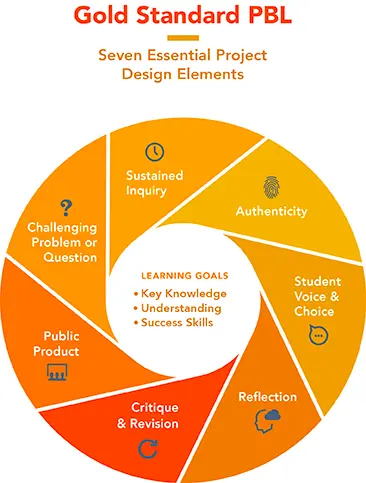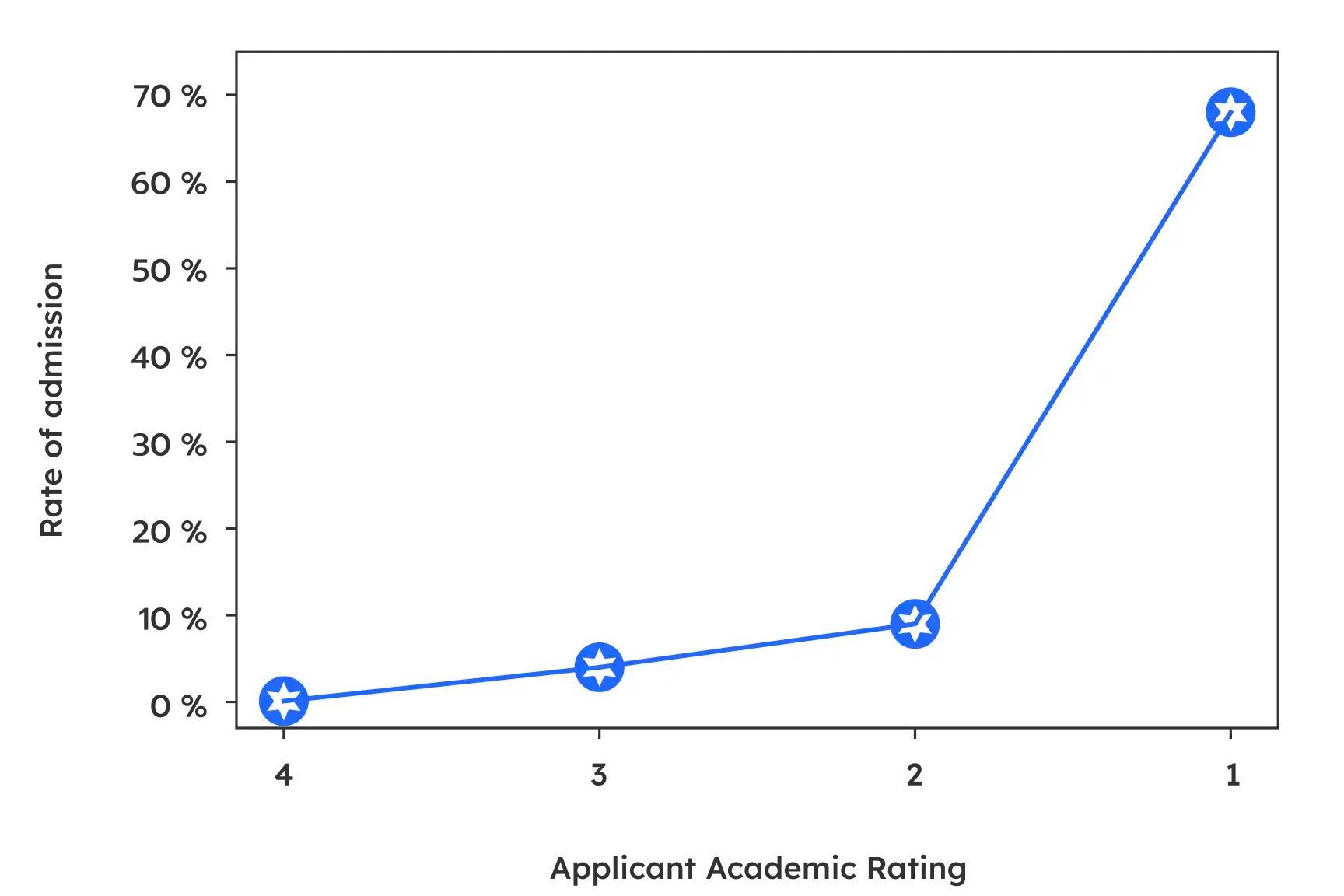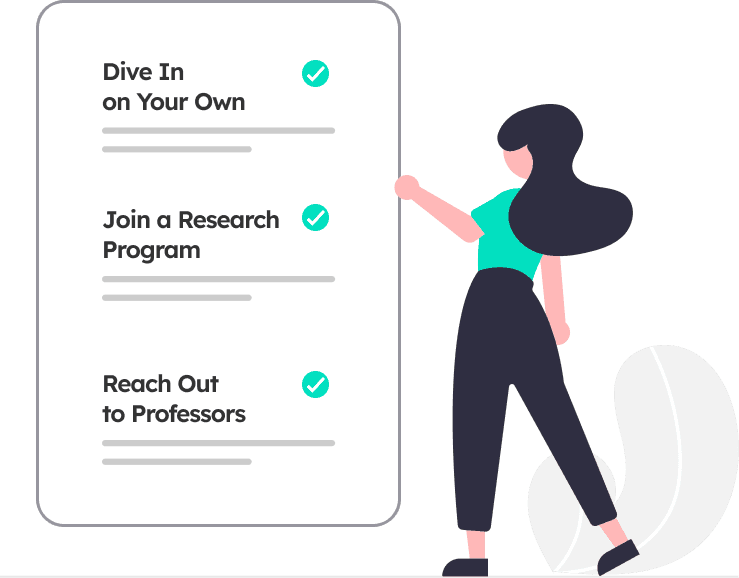Introduction
This guide was created to help you understand everything you need to know about research opportunities for high school students: from the personal and educational value of working on these projects, to how to begin working on a research project of your own, to some highlights of the top research opportunities for high school students available in 2023 and beyond.
Research projects are dedicated deep-dives into a specific area of interest. They are among the best ways for high school students to explore their passions and develop lifelong investigatory and critical thinking skills. They are also critical to preparing high school students for the challenges of college and beyond.
Research projects can be challenging, fun, and, ultimately, incredibly rewarding. We believe that they are powerful tools for intellectual inquiry and irreplaceable opportunities for students to exercise agency in their education. At Polygence, we’ve seen many students use their initial research project as a springboard into their eventual college majors. Our research students have built prototypes for products, launched websites, and even started conversations with politicians interested in their field!
Read on to learn more!
Why Do Research Projects As a High School Student?
What’s the one thing you are most passionate about in the world? Have you ever thought of a specific problem or question in that area and wondered how you could start pursuing a solution or an answer?
Research projects provide a structured system and way of thinking to delve deeply into a specific question about an area of interest. As a standard, project-based learning incorporates the following:

These skills and attitudes are vital tools that allow students to examine a question in a meaningful way, dig in deeper using practical methods, exercise agency and intention in their learning, and ultimately arrive at a real final product.
Conducting research helps students connect more deeply with a given subject matter—studies have shown that students that participate in Research Based Learning are more likely to pursue graduate-level education or be engaged in their field of interest long after project completion. Our internal research has shown that for over 80% of our students, their Polygence project had an influence on what they ended up studying in college.
Even outside of pure academics, research-based learning is said to cultivate a “researcher’s mindset” for solving problems through critical thinking and examining data. These “21st century skills”, such as creativity, innovation, and project management have benefits no matter what field the student ultimately chooses.
Still, the role research projects play in college admissions are quite profound, as evidenced by a growing body of research…
Research Projects and Admissions Impact
Every year, more and more students are graduating high school with 4.0 GPAs and perfect or near-perfect scores on standardized tests. Yet, in spite of this, many of these students do not gain admission into their top choice universities. Nelson Urena, a former admissions officer at Cornell describes several cases that prove this point.
During Urena’s time in the admissions office, many students came through who “were academically stellar and had adequate standardized test scores, but their applications lacked tangible indicators of their passions: a project, experiment, portfolio, or an endeavor on which they spent substantial time learning, tinkering, or creating.” Thus, they were not offered admission.
At the same time, he recalls a particularly memorable applicant who wrote an essay about the weather station they built at home, a student who was ultimately offered admission. The difference? A “demonstrated intellectual interest” that clearly proved the student’s fit and match for the program.

As described in our white paper on College Admissions, Harvard has even codified this preference as part of its admissions ratings system. Students are rated across four key domains (personal, athletic, extracurricular, and academic) on a scale from 1 to 4, where 1 represents exceptional individual achievement.
Though, by and large, most students that apply to Harvard are academically talented, there is still a large variation in how they’re evaluated on this scale. The chart below summarizes the rate of admission for students who were rated either a 1, 2, 3, or 4 for academics. The rate of admission for students who were rated a 1 (68%) was almost eight times higher than students who were rated a 2.

What is the difference between a 1 and a 2 on this scale? According to Harvard’s internal documents, students receiving a 2 typically have “perfect, or near-perfect, grades and testing, but no evidence of substantial scholarship or academic creativity”. In contrast, students receiving a 1 have similarly stellar grades and test results, but have also demonstrated a history of “substantial scholarship or academic creativity”. In fact, Harvard itself states “In many circumstances, an applicant receiving a “1” academic rating has submitted academic work of some kind that is reviewed by a faculty member.”
According to Harvard, this can happen “If the applicant has submitted material that Admissions Office staff believe would be best evaluated by a Harvard faculty member, such as an academic paper or a recording of a musical performance, the application may be sent to a faculty member...for review and assessment.”
It’s no wonder that these sorts of passion projects are increasingly becoming a popular way for ambitious students to improve their admissions profile and demonstrate a passion above and beyond the typical candidate. This has the potential to be particularly important in STEM fields, where originality in a classroom setting may be harder to come by.
Embarking on a research project on a topic about which you’re passionate can help you to stand out to admissions teams, but this is far from the only positive impact. In fact, conducting a research project has been linked to student happiness and overall mental health.
Research Projects and Impact on Mental Health
Among the core principles of research-based learning is empowering students with agency to define their path. In our White Paper, Paths to Resilience, we explore the role that these sorts of research and passion projects can have on student mental health.

Michelle Terry, a licensed clinical psychotherapist, describes it this way:
“Parents always ask me, ‘What’s the number one ingredient to set my children up for success?’ I always say self-confidence...A strong sense of self and importantly self-confidence will empower young adults to find and nurture their passions. For me, there’s nothing better than watching my clients realize their full potential by acting on their passions and making a positive impact on others.”
In fact, Terry’s own daughter has conducted research that connects the definition and pursuit of one’s passions and positive mental health outcomes.
At the center of this feeling is the concept of Locus of Control. For her own Polygence project, Isabel Wong explored the connection between internal and external locus of control and emotional coping—in this case, around the ups and downs of the COVID pandemic. She found that students who exerted a high internal locus of control (i.e. the belief that they were in control of their own life outcomes) were ultimately able to cope better with the unpredictable nature of COVID better than those with a high external locus of control (i.e. the belief that the external world dictated their life and outcomes).
Can research projects provide students with this feeling of control and agency? Upon completing our research-mentorship program, students are asked to complete an Academic Outlook survey. We’ve seen encouraging results from the over 1000 students who have provided responses:
84%
84%
73%
Indeed, for the majority of students, their project provided them an important sense of control, optimism, and personal connection. Polygence projects are student-driven—the topics are defined by the students in an area of passion, the progression of the project is oriented around the students’ goals, and the outcome is self-evaluated by metrics students arrive at in collaboration with their mentor.
Research Projects vs. Internships for high schoolers
Now that you have a better understanding of research projects, you may ask yourself - how do I know what is better for me: pursuing an internship or a research project? The answer ultimately depends on your skills and the path that you think you may want to pursue in the future.

Internships allow students to gain relevant, real-world experience. By completing an internship, you have an opportunity to “try on” a career, from an editorial assistant to a paralegal to an aerospace engineer, to see if you enjoy the day to day work.
Internships are particularly good fits for students that believe that they will work full-time upon graduation from college and have a strong interest in a particular industry.
Output: (Sometimes) A final presentation to company or project
Skills Learned: Communication, networking, specific job skills for the project you’re working on

Research projects require some existing knowledge or interest in a domain, particularly if you’re conducting independent research, where you’ll need to be able to define and frame your own research question.
On the plus side, these types of projects can be more tailored to your interests and will help you to arrive at a very tangible end outcome. Research projects often have a close mentor/mentee interaction, which can kickstart a close relationship with a professional in your field.
Output: A tangible final project (e.g., paper, podcast, etc.)
Skills Learned: Research methodology, critical thinking, academic writing, field-specific skills and knowledge
Discovering Your Passions
Clearly, exploring your passions through research can be an incredibly powerful personal and intellectual experience. One of the first steps to getting started on research is having a specific area or passion that you would like to explore. But what if you’re still unsure what you want to dig deeper into? How can you explore a variety of questions and ideas before embarking on your research journey?
This is a very important step. Discovering your passions can help you to find your hobbies, your major in college, and even friends with shared interests!

How do I find my passions?
The good news is that there are a variety of ways to learn more about potential passions, ranging from online quizzes, to in-person chats with friends and experts in your community.
The first part is asking yourself: what sparks joy for me? What do I find myself daydreaming about? What gets me excited just talking about it? It’s ok if these don’t feel like specific areas to explore yet. Understanding the things that can provide a positive feeling and curiosity is a great start! This will give you a series of threads that you can then pull on to learn more.
If you’re still feeling a bit stuck, that’s ok! There are a variety of ways that you can learn more about yourself and your own interests.
Surveys/quizzes: Services like Youscience and Futurescape help you learn about your preferences and passions in different ways, through interactive games and surveys. By working your way through these services, you’ll end up with a better understanding of what really sparks your interest and potential fields of study and careers that align with those interests.
Pathfinders: Our Pathfinders program is built to help students along their journey of self understanding. Pathfinders pairs you with three different expert mentors in fields of your choice that will help you to better understand their world and their path. This is a wonderful way to get wide exposure to folks who have already embarked upon a long academic journey.

Informational Interviews: Have you ever listened to what someone does for work and thought, “that sounds really cool”. It may sound obvious, but just asking them more about their job and passions is a wonderful way to learn and to see if the topic resonates with you. This is considered to be an informational interview. While it may seem like a big ask, folks generally love talking about themselves and how they got to where they are. Informational interviews can really be fruitful when you come prepared with specific questions about things that interest you that your conversation partner might be able to answer.
Exploring Your Passions Through Research Projects
Awesome, so now you have a clearer sense of where it will be most rewarding for you to spend your time and energy. Still, a hallmark of a strong research project is the structured framework of inquiry, oftentimes guided by a mentor or expert in the field. So how can you get started with your research project?
There are a variety of options, depending on your time, focus, and budget: ranging from conducting the research entirely on your own, participating in an online or in-person research opportunity for high school students, or even cold-emailing professors who teach in your area of passion.
The resources below will help you to take the next step of defining and conducting your research.

Ways to Conduct Researching on your own:
A logical first question is: can I conduct this research on my own? While the specific questions students study can differ significantly, the great news is that research projects generally follow a standard, structured approach, which we describe in full detail here. This includes:
Choosing a topic: This can be tough at first. Luckily, using the resources above, you’ve probably already defined a clear area of passion into which you can start digging. Next, you’ll want to think about investigating a specific topic that hasn’t been fully explored yet. This is your opportunity to become the expert on that question!
Preparing to write
Conducting Research: Conducting primary literature research on your topic is a good way to learn what work has already been investigated, which can further sharpen your own questions and approach.
Stating a clear thesis: A thesis is your point of view on the question you are investigating. For instance, one of our award-winning students, Meredith, formulated the specific thesis that 10 minutes of upbeat music is enough to impact people’s moods. This is the question you will then work to confirm or refute through your research!
Writing an Outline: An outline is a helpful tool to structure your thoughts. Start by writing your thesis statement at the top of your document and jotting down all the individual points you’ll need to support that statement.

Writing: This is where you’ll provide your full thoughts as well as a strong “so-what?” statement to give context and next steps for your reader.
Sharing: You’ve done all this hard work. Share your work with your friends, family, and other researchers in your community.
By following this structured approach, you could conduct your entire investigation on your own! However, taking this approach means that you may not be able to receive feedback and refinement from someone who understands your topic deeply.
Joining an Established Research Program for High School Students
Over the past few years, getting access to high quality, guided research opportunities has gotten much more popular.
As we’ve summarized previously, there are a variety of research programs tailored to specific subject areas, including biology, computer science, and finance.

Virtual research opportunities are also a strong option that provide access to a wide base of potential mentors that can match your interests. Our flagship mentorship program is 1 on 1 research opportunity with an expert mentor in your field. Our pairing process ensures that there is a strong interest match between you and your mentor. The quality of the mentor/mentee relationship is oftentimes the most important part of the entire project experience!
Cold emailing professors
Do you already know of experts in the field you plan to investigate? Can you reach out to them directly to see if you could work alongside them?
Oftentimes, the answer is: Yes! The process of reaching out to professors with whom you don’t have an existing connection is called cold-emailing. Done correctly, it can be a highly effective way of building academic relationships and conducting specialized research. However, not all cold emails are built the same.
As Daniel, a PhD candidate in English documents here, the keys to cold-emailing professors are
Picking the right audience
Deciding what to say and bringing interesting tidbits and insight
Being as specific as possible.
The goal in cold-emailing is not to get in front of the most well-known or popular researcher in your field, rather, it’s about clearly demonstrating the mutual interest and passion between you and the professors you’re reaching out to. You would be surprised at the positive connections that can spark when there’s a clear overlap of interests!

Showcasing Your Research
Ok, so you put in all this time and effort, and you were able to create work of which you’re immensely proud. How will you let the world know about it? The process of getting your work seen is called showcasing, and is often a vital part of the research project experience.
Showcasing is your opportunity to provide visibility to the perspective that you have gained through your extensive research, to demonstrate your own growth, as well as synthesizing and solidifying the knowledge you acquired throughout the process.
In traditional academia, showcasing can often take the form of publication in research journals in your field, or presenting at a conference or symposium. However, identifying the right opportunities can be quite difficult, which is why we’ve compiled this list of showcasing opportunities for student scholars.
In addition to peer-reviewed journals and our research archive for rising scholars, there are plenty of ways in which you can get creative to match your showcasing with your work, including creating a podcast, youtube videos, or a Medium page. There are a ton of options available to you to tell the story in your own, authentic way!

Conclusion
We’re so excited that you’re interested in pursuing a path in research. Some of our most important growth has come through our own research experiences.
To learn more about how Polygence can help you along your journey, please read more about our flagship research mentorship program here.


